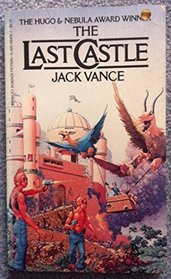A Very Thin Book
In July, 2009, the New York Times Magazine ran a big article on Jack Vance, which began with: "Jack Vance, described by his peers as 'a major genius' and 'the greatest living writer of science fiction and fantasy,' has been hidden in plain sight for as long as he has been publishing -- six decades and counting." I just don't get it! This book was truly mediocre -- and it won Hugo and Nebula Awards! It is extremely thin, in literal as well as figurative substance. At 113 pages and around 22,000 words, it's barely a novella. It's extremely male, with women appearing only as objects and set decorations. The emotions are sparse and shallow, and the technology, the thing that usually revs up science fiction, is rudimentary, uninteresting, and not even described well.
In July, 2009, the New York Times Magazine ran a big article on Jack Vance, which began with: "Jack Vance, described by his peers as 'a major genius' and 'the greatest living writer of science fiction and fantasy,' has been hidden in plain sight for as long as he has been publishing -- six decades and counting." I just don't get it! This book was truly mediocre -- and it won Hugo and Nebula Awards! It is extremely thin, in literal as well as figurative substance. At 113 pages and around 22,000 words, it's barely a novella. It's extremely male, with women appearing only as objects and set decorations. The emotions are sparse and shallow, and the technology, the thing that usually revs up science fiction, is rudimentary, uninteresting, and not even described well.




